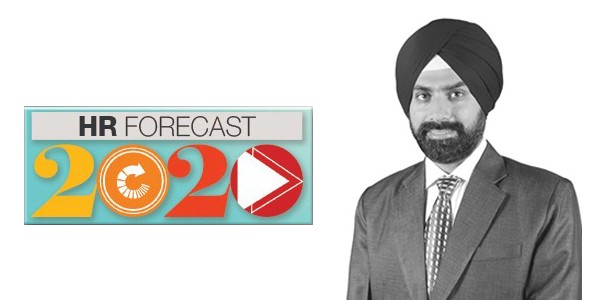Technology, data, employee experience: What’s high on agenda
It will be balance between the three, but I think the transformation will be led by data. The data today is far more acceptable and organisations can analyse it to help them in their HR processes. The data which was available in the past was limited and quality was very poor. On the contrary, the data which is available today is supreme in quality and will help HR leaders to take decisions for their people. We need to understand that the dimensions of employee experience is changing today. What employees used to expect in the past has become a hygiene today. In the past, employees expected classroom trainings and HR to answer their queries, but now these processes are either robotised or transformed into self-service.
Expectations are far more evolved, business leaders, will want HR to play a relevant role in business decisions. To do this, we need superior data and technology to enable it. In Apollo Munich’s context, the learning journey is automated through mobile learning interventions. It is all gamified. It is a Mario kind of a game in which employees can play for two hours and learn new things. The level of employee experience has taken a big leap. Instead of taking a three-day classroom session, employees expect it on the go. Relevant data will make this possible enabled by technology.
The biggest challenge for HR in your sector
Our industry is growing at a rate of 30-35 per cent a year. Availability of relevant talent is a critical dimension for a manpower-led industry like ours.
Secondly, with a lot of HR functions getting automated, how we maintain a human touch, will be a challenge. However, we are using good amount of data which is enabled by technology, the focus will be on developing emotional upbringing and cementing.
Third, employee retention will continue to be a big challenge. Availability of talent and retaining the existing talent in the organisation will be the key.
Grooming leaders for future is also something that we would need to look into because businesses are evolving with technology everyday.
To get over such challenges, HR will have to be proactive. For instance, no one will come and say ‘we need training’. With the understanding of the business and the domain the person works in, HR needs to plan the upskilling processes for employees.
Secondly, how effective the HR is in its business partnering abilities.
Third, with so much technology coming and data in hand, the level of emotional quotient in HRs will play a successful factor in the next year. If you do not have the emotional quotient, you are totally dependent on data and technology for making decisions which takes away human reasoning from the process.
Time to say goodbye to a few age-old HR practices
There are quite a few of these policies which we need to get rid of asap (as soon as possible).
Firstly, is the dress code policy which should be completely discontinued.
Secondly, policies on office timings. Instead of switching ‘ON’ office lights, we would want to switch ‘ON’ human brains, when there is work. Today there is an emergence of gig economy. They do not want to be bound to the walls of a room, roof or a specific time. If they are delivering good results why to constrain them.
These policies puts a lot of restrictions on employees. Explaining it with a very simple question, do you want a guy who comes everyday to the office in a suit and a tie, and delivers nothing or a person who delivers work irrespective of the fact that he/she is present in the office. These things have become redundant in today’s time.
Ladder-Shaped to Pulse-Shaped Compensation Mechanism
As we move forward it is not about your designation or the function that you work in, it is about the value that you add to the organisation. Two years back, we started a management trainee programme. It helped us to hire some 40-50 young professionals, who do not hesitate in challenging the seniors, and the amount of revenue that they earn is tremendous. For me, paying salaries according to designations and the bandwidth of the person is of no use. Today the number of years of experience do not matter, what matters is the output that one delivers in growing the organisation. Many of the industries are moving closer to being like the start-ups and the IT industry who work on project basis and pay salaries.
Digital recognition and Virtual medals
Organisations are running behind automating each and every function of HR. But for me, digital recognitions cannot replace a physical pat on the back. There should be a balance between the two. A leader who can exercise both the things in a balance together is the winner. But there are some instances where digital recognitions are very helpful especially in industries where employees are working in different locations. They can only be recognised by seniors through digital rewards. It helps us in breaking geographical boundaries. We have digitised our appreciation journey. We have a digital platform which helps us in recognising people digitally and in monetary terms as well through digital points. The employees are very excited about as it works like a Facebook platform where people can like and engage themselves in the activity without any HR intervention.
(This article first appeared in HRKatha print magazine)



